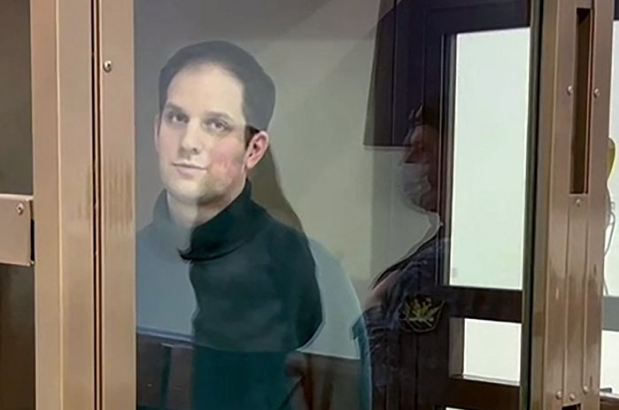Skip to content
- Russian President Vladimir Putin said that Russia wants “to reach an agreement” on the return of Wall Street Journal reporter Evan Gershk ovich, who is currently in Russian custody on an allegation of espionage that he, the Journal and the U.S. government vehemently reject.
- During a press conference Thursday, Putin was asked about the recent declaration by the Biden administration that the Russian government rejected a new offer aimed at freeing Gersh kovich, as well as former U.S. Marine and Michigan corporate-security executive Paul Whelan, who is also in Russian custody.
- “It is not that we have refused to return them,” said the Russian president. “We want to reach an agreement, and these agreements must be mutually acceptable and must suit both sides. We have contacts with our American partners in this area, and there is an ongoing dialogue.”
- Putin added that, “It is not easy. I will not go into specifics, but in general it seems to me that we are speaking a language that we both understand. I hope that we will find a solution.”
- Russia’s Federal Security Service, or FSB, detained Gershkovich, who was accredited to work as a journalist by Russia’s Foreign Ministry, on March 29 while he was on a reporting mission in the Russian city of Yekaterinburg. The 32-year-old reporter has been held in Moscow’s Lefortovo Prison ever since.
- Whelan, an American citizen, is serving a 16-year sentence on an espionage charge that he, his family and the U.S. say is bogus.
- A Russian court upheld Gershkovich’s detention on Thursday, a decision that means the Journal reporter will stay in custody through January.
- Gershkovich appeared in court for the appeal of last month’s decision that extended his detention at the request of investigators from the FSB. The rejection of that appeal Thursday puts him behind bars awaiting trial until Jan. 30, which will mark 10 months since his arrest.
- Last week, President Biden pledged to continue pressing for Gershkovich’s release, days after the Biden administration revealed that Moscow rejected an offer aimed at freeing Gershkovich and Whelan.
- The offer for the detained Americans involved trading prisoners, people familiar with the matter said, without explaining.
- Neither the U.S. Embassy in Moscow nor the State Department immediately replied to a request for comment on Putin’s statements on Thursday.
- U.S. officials have said they are talking with officials in countries holding Russian citizens in custody and are open to incorporating those prisoners in a deal to free Gershkovich and other Americans detained in Russia.
- In his remarks Thursday, Putin said that “the American side must hear us and make an appropriate decision—one that suits the Russian side as well.”
- In Gershkovich’s case, Russian officials have hinted at the possibility of a deal but said that any consideration of such a swap must wait until the end of a trial. It couldn’t be decided when Gershkovich might face trial, but experts familiar with Russia’s legal system said it could take many months.
- Gershkovich is the first American journalist to be charged with spying in Russia since the end of the Cold War. Earlier this year, the U.S. government classified him as wrongfully detained and has demanded his instant release. The designation unlocks a broad U.S. government attempt to secure his release.
- The U.S. has also classified Whelan as wrongfully detained.
- Gershkovich’s initial pretrial detention was set to finish on May 29 but has been repeatedly extended. Russian authorities haven’t officially given evidence to support the allegation against him.
- The Moscow City Court has denied past appeals by Gershkovich’s lawyers, including a request that he be transferred to house arrest, agree to constraints on his movements or be given bail.
- “Evan’s ordeal has now stretched on for over 250 days,” said Lynne Tracy, the U.S. ambassador to Russia, standing outside the court. “The U.S. government will continue to advocate for Evan’s immediate release and the release of all wrongfully detained American citizens overseas.”
